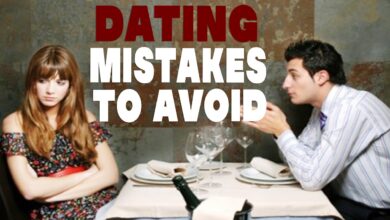
Introduction: Protecting Your Heart in Modern Dating
Dating in 2025 feels like stepping into a whirlwind. With dating apps, instant messaging, and fast-paced lifestyles, finding a meaningful connection seems easier than ever—and yet more confusing. While technology gives us options, it also brings challenges: ghosting, love-bombing, catfishing, and casual flings disguised as serious commitments.
In the middle of all this noise, one truth remains clear: your emotional safety matters more than anything else. Without it, even the most exciting romance can turn toxic. Emotional safety doesn’t mean you keep your guard up at all times. Instead, it’s about knowing your worth, respecting your feelings, and recognizing when a connection supports or harms your well-being.
When you stay emotionally safe, you protect your confidence, avoid unnecessary heartbreak, and create the space to experience love in its healthiest form. This article will explore proven ways to guard your emotions while dating, helping you embrace romance without losing yourself.
Why Emotional Safety Matters More Than Ever
In the past, dating often meant meeting people through friends, school, or work. There was a natural vetting system in place. Today, a complete stranger can slide into your inbox or appear on your screen with just a swipe. This opens the door to opportunity—but also risk.
Why does emotional safety matter so much now?
- High exposure, high risk: With so many options, it’s easy to become emotionally exhausted or manipulated.
- Pressure to perform: Social media highlights “perfect couples,” making people feel pressured to present an idealized version of themselves.
- Fear of missing out: The idea that there’s always someone “better” can make people treat others as disposable.
Emotional safety protects you from being swept up in this cycle. According to Psychology Today, safe emotional environments are built on respect and honesty. Without them, people experience heightened anxiety, self-doubt, and burnout.
Dating should add joy to your life—not chaos. And emotional safety is what makes the difference.
Understanding What Emotional Safety Really Means
Many confuse emotional safety with emotional dependency. They’re not the same.
- Emotional safety means feeling free to express yourself without fear of judgment, manipulation, or rejection.
- Emotional dependency is when your happiness depends entirely on someone else’s approval.
True safety in dating rests on three pillars:
- Trust: You believe the person will respect your feelings and not exploit your vulnerability.
- Respect: Both people honor each other’s boundaries, choices, and individuality.
- Consistency: Words and actions align, creating reliability in the relationship.
When these three pillars are missing, you risk losing yourself in the relationship. Emotional safety is not a luxury—it’s a necessity.
Setting Boundaries Without Guilt
Boundaries are not walls; they’re doors. They tell others how you want to be treated while leaving space for genuine intimacy. Unfortunately, many people avoid setting boundaries because they fear rejection. But the truth is simple: boundaries don’t push healthy people away—they attract them.
Examples of Boundaries in Dating
- Refusing late-night calls if you need rest.
- Saying no to rushed intimacy when you want to take things slow.
- Limiting how much you share about personal trauma early in dating.
- Deciding you won’t tolerate disrespectful language or dismissive behavior.
Practical tip: When stating a boundary, be firm yet kind. Instead of saying, “Don’t ever do that again,” try “I feel uncomfortable when that happens, so I’d appreciate it if we did things differently.”
Healthy partners will respect your boundaries. Unhealthy ones will test them or walk away. That’s not a loss—it’s a blessing in disguise.
Red Flags You Should Never Ignore
One of the fastest ways to stay emotionally safe is to recognize red flags early. These signs warn you that the connection may be harmful.
| Red Flag | What It Looks Like | Why It’s Dangerous |
|---|---|---|
| Love-bombing | Intense affection too soon | Creates dependency, hides manipulation |
| Gaslighting | Denying your reality or memory | Destroys self-trust, causes confusion |
| Ghosting | Disappearing with no explanation | Leaves unresolved hurt, damages self-esteem |
| Controlling behavior | Dictating what you wear or who you see | Reduces independence, leads to emotional abuse |
| Avoidance | Refusing to discuss feelings | Blocks intimacy, fuels insecurity |
Red flags are not challenges to overcome. They’re warnings to leave. Ignoring them only leads to deeper heartbreak.
Balancing Vulnerability and Protection
Love requires openness. But how do you share your heart without leaving it completely unguarded?
- Share in layers: Reveal personal details gradually. Test the waters before diving in.
- Observe reactions: Notice how the other person responds when you express needs or vulnerabilities. Do they show care or dismissiveness?
- Match investment: Don’t give more emotional energy than you receive. Balance creates security.
Being “too guarded” may keep you safe, but it also keeps you isolated. The goal isn’t to avoid vulnerability—it’s to practice safe vulnerability.
Building Self-Awareness Before Dating
Before stepping into a new relationship, ask yourself: Am I truly ready?
Self-awareness helps you avoid repeating mistakes. Reflect on:
- Your deal-breakers: What behaviors will you never tolerate?
- Your patterns: Do you often chase unavailable partners?
- Your motivations: Are you dating for love, validation, or distraction?
Verywell Mind highlights that self-awareness increases emotional intelligence. By knowing yourself, you’ll spot red flags sooner and choose partners who align with your values.
Protecting Yourself on Dating Apps
Dating apps open doors to new connections, but they can also overwhelm and harm your emotional balance if you’re not careful.
Emotional Safety Tips for Apps
- Avoid over-sharing personal details too early.
- Don’t mistake intense texting for genuine intimacy.
- Move to a video call before meeting in person to assess sincerity.
- Step back if conversations feel rushed, confusing, or pressure-filled.
Remember: not everyone online has good intentions. If a connection drains your energy instead of building it, take a pause.
Communicating Your Needs Early On
Honesty may scare away the wrong people—but it also attracts the right ones. Expressing your needs early prevents misunderstandings.
Examples of Healthy Communication
- “I prefer consistent communication; it helps me feel connected.”
- “I’m not ready for exclusivity yet; let’s take our time.”
- “I value respect during disagreements. Yelling doesn’t work for me.”
The earlier you share your expectations, the faster you filter out mismatches. Clear communication doesn’t weaken romance—it strengthens it.
Practical Grounding Habits During Dating
Dating can sweep you off your feet. But if you lose touch with yourself, emotional risks grow. Grounding habits keep you steady.
Examples of Grounding Practices
- Journaling: Helps you reflect on feelings and identify patterns.
- Routine: Maintain hobbies, exercise, and friendships instead of centering life around the new partner.
- Emotional check-ins: Ask yourself, Do I feel respected and safe in this connection?
- Limiting over-dependence: Avoid making one person your entire emotional world.
Grounding keeps your feet planted, even when emotions run high.
What to Do If You Feel Unsafe
No matter how carefully you approach dating, there may come a moment when your instincts scream, “This doesn’t feel right.” Emotional safety is often tested when someone disregards your boundaries, manipulates your feelings, or pressures you into situations you’re not comfortable with. The good news? You’re not powerless. Knowing what to do if you feel unsafe is the ultimate form of self-protection.
Here’s a detailed roadmap for handling those moments wisely.
1. Listen to Your Gut Instincts
Your body often knows something’s wrong before your mind admits it. That uneasy feeling in your stomach or sudden tension in your chest isn’t paranoia—it’s your intuition. Many people ignore these signs, only to regret it later.
- If you feel nervous, drained, or on edge around someone, take note.
- Don’t dismiss your discomfort as “overthinking.”
- Treat unease as information—it’s your inner compass trying to protect you.
Trusting yourself is the first step toward safety.
2. Pause Communication Immediately
If something feels off, you don’t need to respond right away. Give yourself space to think.
- Delay answering texts or calls until you’re calm.
- Silence notifications if the constant buzzing feels overwhelming.
- Remember: not replying instantly is your right.
Taking time allows you to step out of the emotional haze and evaluate clearly.
3. Reinforce Your Boundaries
When you feel unsafe, boundaries become non-negotiable. You don’t owe anyone endless explanations.
Examples of what you can say:
- “I need space right now.”
- “That comment made me uncomfortable.”
- “I don’t want to continue this conversation in this direction.”
If the other person respects your boundaries, that’s a positive sign. If they push back, mock you, or ignore your requests, that’s proof they don’t value your safety.
4. Document the Situation
If the behavior feels manipulative, threatening, or invasive, keep a record. This isn’t paranoia—it’s protection.
- Save text messages, voicemails, or social media exchanges.
- Write down what happened, when, and how it made you feel.
- If in person, note the date and details afterward.
Documentation helps you spot patterns and gives you evidence if things escalate.
5. Reach Out to Your Support System
Silence is the enemy of safety. Share your concerns with someone you trust.
- Talk to a close friend or family member.
- Ask them to check in on you if you’re meeting someone new.
- Share details like the person’s name, phone number, or meeting spot.
Confiding in others validates your experience and provides backup in case things worsen.
6. Exit the Situation—Even Abruptly
If you’re on a date and things feel wrong, don’t hesitate to leave. Your safety outweighs politeness.
- Have a “safe word” with a friend you can text if you need help.
- Keep extra money, ride-share apps, or a trusted contact handy.
- Don’t worry about looking rude—your life is worth more than their feelings.
You’re never obligated to stay in a situation that feels unsafe.
7. Seek Professional Support If Needed
If unsafe experiences repeat or leave lasting emotional scars, professional help can make a difference. A therapist or counselor can:
- Help you understand why you felt unsafe.
- Guide you in spotting manipulation earlier next time.
- Offer healing strategies so you don’t carry trauma forward.
Therapy isn’t just for crises—it’s a proactive tool for emotional safety.
8. Block and Cut Off Access
Sometimes the most powerful step is the simplest: cut contact completely.
- Block their number and social media accounts.
- Remove them from shared groups or online platforms.
- Avoid explaining yourself—silence sends the clearest message.
Unhealthy people often thrive on attention. Cutting them off protects your peace.
9. Report If Behavior Crosses a Line
If someone threatens you, stalks you, or violates your consent, it’s not just unsafe—it’s unacceptable.
- Report abusive behavior to the dating app if that’s where you met.
- Inform local authorities if threats escalate.
- Consider restraining orders in severe cases.
Taking legal steps may feel intimidating, but it can be necessary to protect yourself.
10. Rebuild Your Confidence
Unsafe experiences can shake your self-trust. But recovery is possible.
- Remind yourself that their behavior isn’t your fault.
- Reaffirm your worth by practicing self-care rituals—exercise, journaling, meditation.
- Surround yourself with supportive people who uplift you.
- Take time off dating if you need to reset.
The goal isn’t just to escape unsafe situations—it’s to rebuild stronger so they don’t define your future.
Quick Safety Checklist
When you feel unsafe, ask yourself:
- ✅ Am I trusting my instincts or ignoring them?
- ✅ Have I set and reinforced my boundaries?
- ✅ Do I have someone I can talk to right now?
- ✅ Do I have an exit strategy if things escalate?
This mental checklist keeps you grounded and reminds you that you always have choices.
Feeling unsafe in dating is never something to brush aside. It’s your mind and body protecting you from harm. The key is to act quickly—pause, set boundaries, seek support, and leave if necessary. Remember, you never owe anyone continued access to your time, emotions, or body when you don’t feel secure.
Choosing safety is not weakness; it’s strength. By listening to your instincts and taking proactive steps, you don’t just protect yourself—you also create space for healthier, more respectful connections in the future.
Remember: protecting your emotional health is always more important than maintaining a relationship.
Healing After Hurtful Dating Experiences
Heartbreak is universal. But how you heal determines how you’ll love again.
Healing Strategies
- Allow yourself to grieve: Don’t rush recovery.
- Redirect your energy: Focus on personal growth—new hobbies, learning, or travel.
- Surround yourself with supportive people: Lean on friendships that uplift you.
- Seek therapy if needed: A professional can help break unhealthy patterns.
Healing is not linear. Some days will feel easier, others harder. The key is to keep moving forward without losing faith in love.
Long-Term Emotional Safety Strategies
Even when you’ve found a promising partner, emotional safety isn’t automatic—it’s something you nurture.
Practices for Ongoing Safety
- Consistent communication: Check in regularly about feelings and expectations.
- Mutual growth: Both partners commit to learning and improving.
- Respect during conflict: Disagreements are natural, but shouting, silent treatments, or disrespect are not.
- Self-care: Keep investing in yourself outside the relationship.
When both people work on emotional safety, love thrives instead of withering.
Conclusion: Love Without Losing Yourself
Dating can be thrilling, but it should never cost your peace of mind. Staying emotionally safe doesn’t mean you’re cynical or closed off. It means you’ve learned to love wisely—protecting your heart while still opening it to the right person.
By setting boundaries, recognizing red flags, practicing self-awareness, and communicating clearly, you create a safe environment where love can flourish. True romance isn’t about losing yourself—it’s about finding someone who helps you grow while respecting your emotional world.
Love boldly, but protect yourself fiercely. When you stay emotionally safe, you don’t just find love—you find freedom.









